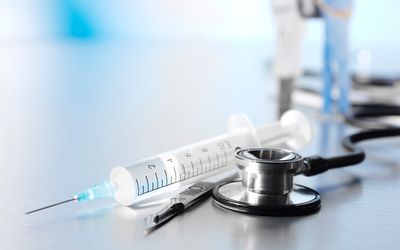A SIMPLE mouth swab may one day help diagnose tuberculosis, if the results of a small trial conducted in Worcester and Seattle can be replicated.
Quick and accurate diagnosis is essential for controlling TB, which affected 380,000 people in SA in 2013, according to the World Health Organisation. TB is currently diagnosed by getting patients to cough up sputum and then testing it for TB germs. But many patients struggle to cough up the thick mucous from the lungs, so scientists are hunting for alternative approaches.
HIV/AIDS patients "don’t usually have good quality sputum, children have difficulties coughing it up, and so do patients who are very ill", the principal investigator of the South African arm of the study, Angelique Luabeya, said. "There is also a risk to healthcare workers (from coughing patients)."
Sputum testing was also problematic because it often failed to identify TB and returned a false negative in up to 30% of cases, she said.
Researchers at the South African Tuberculosis Vaccine Initiative (SATVI) and the University of Washington took three oral swabs from each of 20 recently diagnosed TB patients in Worcester and 20 healthy volunteers in Seattle.
They then used polymerase chain reaction tests to detect the DNA of TB germs in the swabs. They found that 18 out of the 20 TB patients yielded at least two positive swabs, and all of the swabs from the healthy patients were negative for the DNA. This means the test yielded a false negative in 10% of the cases.
Dr Luabeya emphasised that the study, published in Scientific Reports on March 2, was a small "proof of concept" study, which did not tell scientists whether a patient had active or latent TB.
Further research was needed to answer that question, and to determine whether the findings can be replicated, she said.
"Care and control of the disease TB really requires prompt case-finding," said Gerard Cangelosi, University of Washington professor of environmental and occupational health Sciences and global health.
Detecting the disease with a simple oral swab "could be a game changer for TB control because it could make diagnosis cheaper and easier", Prof Cangelosi said in a statement.

Picture: THINKSTOCK
A SIMPLE mouth swab may one day help diagnose tuberculosis, if the results of a small trial conducted in Worcester and Seattle can be replicated.
Quick and accurate diagnosis is essential for controlling TB, which affected 380,000 people in SA in 2013, according to the World Health Organisation. TB is currently diagnosed by getting patients to cough up sputum and then testing it for TB germs. But many patients struggle to cough up the thick mucous from the lungs, so scientists are hunting for alternative approaches.
HIV/AIDS patients "don’t usually have good quality sputum, children have difficulties coughing it up, and so do patients who are very ill", the principal investigator of the South African arm of the study, Angelique Luabeya, said. "There is also a risk to healthcare workers (from coughing patients)."
Sputum testing was also problematic because it often failed to identify TB and returned a false negative in up to 30% of cases, she said.
Researchers at the South African Tuberculosis Vaccine Initiative (SATVI) and the University of Washington took three oral swabs from each of 20 recently diagnosed TB patients in Worcester and 20 healthy volunteers in Seattle.
They then used polymerase chain reaction tests to detect the DNA of TB germs in the swabs. They found that 18 out of the 20 TB patients yielded at least two positive swabs, and all of the swabs from the healthy patients were negative for the DNA. This means the test yielded a false negative in 10% of the cases.
Dr Luabeya emphasised that the study, published in Scientific Reports on March 2, was a small "proof of concept" study, which did not tell scientists whether a patient had active or latent TB.
Further research was needed to answer that question, and to determine whether the findings can be replicated, she said.
"Care and control of the disease TB really requires prompt case-finding," said Gerard Cangelosi, University of Washington professor of environmental and occupational health Sciences and global health.
Detecting the disease with a simple oral swab "could be a game changer for TB control because it could make diagnosis cheaper and easier", Prof Cangelosi said in a statement.





















Post a comment